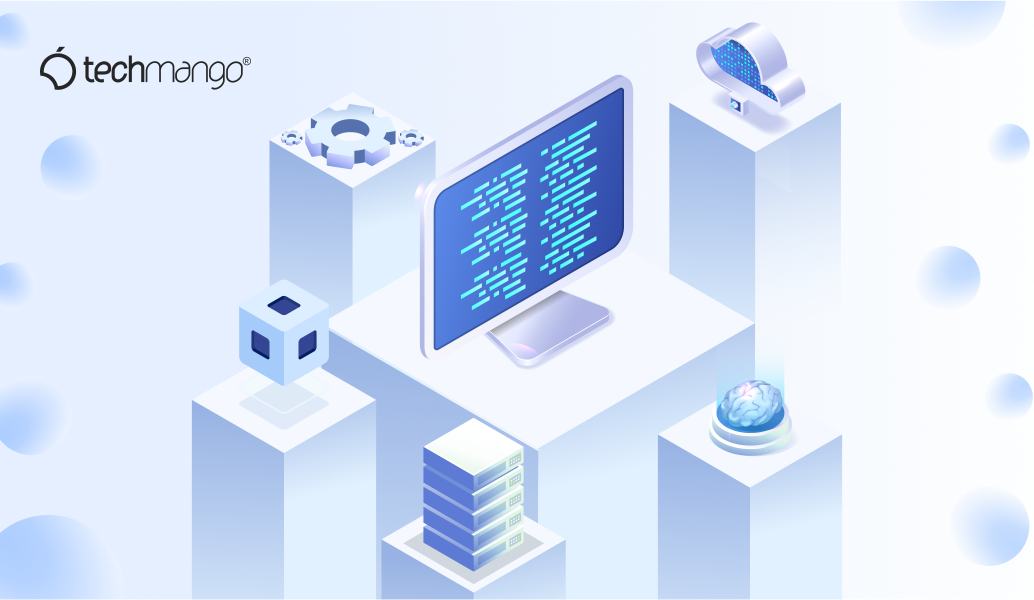Why tracking custom business application trends matters for U.S. companies
Custom business applications play a central role in modern enterprises, enabling streamlined operations, unified data management, and consistent service delivery. Tracking trends in application development provides insight into technology adoption, process optimization, and evolving user expectations. These insights guide investment decisions, deployment strategies, and resource planning.
What Are the Major Trends in Custom Business Application Development
What are the biggest trends in custom business app development in 2025?
Key trends for 2025 include:
- Low-code and no-code platforms to accelerate application delivery.
- Cloud-native platforms and microservices architectures for flexible application deployment.
- AI-driven automation to enhance decision-making and reduce repetitive tasks.
- Mobile-first and UX-focused design to improve adoption and engagement.
These trends shape applications that deliver measurable business outcomes and operational reliability.
Why are Low-Code / No-Code Platforms Becoming Popular
Why are U.S. businesses adopting low-code / no-code for custom apps?
Low-code and no-code platforms shorten development cycles and reduce reliance on large engineering teams. U.S. companies adopt these platforms to:
- Accelerate time-to-market.
- Enable collaboration between technical and business teams.
- Reduce development and maintenance overhead.
This structured approach supports faster deployment while maintaining operational integrity.
How Does Cloud-Native & Microservices Architecture Transform Custom Apps
How do cloud-native and microservices architectures improve custom business applications?
Cloud-native and microservices architectures provide:
- Independent scaling of application components.
- Seamless updates with minimal disruption.
- Enhanced resilience through modular design.
- Integration with enterprise-grade systems and services.
This approach delivers consistent performance, operational stability, and alignment with enterprise requirements.
What Role Does AI and Automation Play
How is AI-powered automation shaping custom app development for U.S. businesses?
AI and automation are embedded in enterprise applications to:
- Provide predictive insights for strategic decision-making.
- Automate routine workflows to optimize resource allocation.
- Enable personalized customer experiences.
- Support process improvement and operational continuity.
Applications enhanced with AI deliver consistent, repeatable outcomes while allowing teams to focus on strategic priorities.
What UX and Mobile-First Design Trends Are Emerging
Why is user experience and mobile-first design central to modern custom apps?
User experience is critical to adoption and performance. Mobile-first design ensures:
- Uniform functionality across devices.
- Intuitive interfaces that minimize training requirements.
- Engagement through responsive and accessible design.
What emerging practices will shape custom business apps beyond 2025
Emerging practices include:
- Voice and gesture-driven interfaces for natural interaction.
- Role-based dashboards tailored to specific user responsibilities.
- Accessibility-first design to meet regulatory standards.
- Adaptive interfaces that adjust dynamically to device and context.
What Challenges Do U.S. Companies Face with These Trends
What are the main challenges U.S. companies must overcome when adopting these trends?
Challenges include:
- Integration with legacy systems.
- Compliance with evolving cybersecurity and regulatory requirements.
- Recruiting and retaining expertise in advanced technologies.
- Aligning development timelines with business priorities.
Partnering with experienced development providers helps manage these challenges while maintaining delivery quality.
Related Blog
What is AI-powered Native App Development
How Can U.S. Businesses Leverage These Trends Successfully
Successful adoption requires a disciplined approach:
- Establish clear objectives and measurable KPIs.
- Select appropriate technology stacks and platforms.
- Engage development partners with proven industry experience.
- Apply agile development methodologies with iterative testing.
This approach ensures delivery of reliable, high-performing applications aligned with organizational goals.
What Cost & ROI Considerations Should Be Expected
What return on investment can U.S. businesses expect from adopting these trends?
- Development timelines: 30–50% shorter compared to traditional methods.
- Operational overhead: 20–40% reduction through optimized deployment and maintenance.
- Business outcomes: Improved process accuracy, customer engagement, and decision support.
Investment decisions should consider both immediate outcomes and sustained operational benefits.
Key Trends & Lessons for U.S. Business App Development
Custom business application development in 2025 is characterized by low-code/no-code platforms, cloud-native architectures, AI-driven automation, and mobile-first UX design. Organizations adopting these trends gain measurable improvements in application delivery, operational reliability, and service quality.
Techmango supports enterprises in implementing these trends. Our end-to-end custom app development services encompass strategy, architecture, design, development, and deployment. With expertise in cloud-native systems, AI integration, and enterprise applications, Techmango delivers reliable applications that meet U.S. business requirements, maintain regulatory compliance, and deliver measurable operational results.
Related Blog
How Smart AI-Powered Based Chatbot Solution Helps Enterprises

